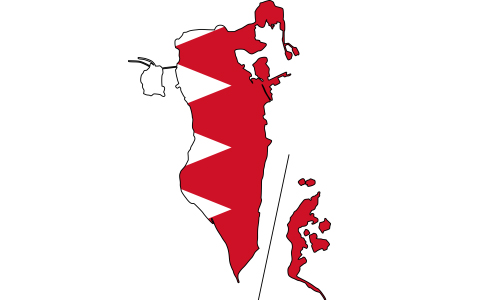On Tuesday, 18 September 2012, the Cairo Institute for Human Rights Studies, the International Federation for Human Rights, CIVICUS, Human Rights Watch, Khiam Rehabilitation Center for Victims of Torture , and Bahrain Rehabilitation and Anti-Violence Organisation (BRAVO) held a side event entitled Bearing Witness: Bahrain and the Universal Periodic Review Process (UPR) as part of the 21st session of the United Nations Human Rights Council (HRC) currently taking place in Geneva, Switzerland.
Panelists at this event were Ms. Maryam al-Khawaja, acting president of the Bahrain Center for Human Rights, Dr. Nada Dhaif, chair of Bravo, Mr. Abdullah Hussein, member of the Bahrain Workers Union, Dr. Rola al-Safar, head of the Bahrain’s Nurses’ Society, and Ms. Farida Ghoulam, member of the Khiam Rehabilitation Center.
At the end of event, al-Khawaja presented four demands: 1. Special session on Bahrain at HRC, 2. Joint statement by states denouncing the human rights violations in Bahrain at the next session of the Council, 3. Fact-finding mission to be conducted by the Office of the High Commissioner for Human Rights to look into the rights situation in Bahrain 4. Inquiry into the implementation of the recommendations of the Bahrain Independent Commission of Inquiry (BICI)- mandated by the King to look into the violations committed during the February 14 popular uprisings- by the Council.
On Wednesday, 19 September, CIHRS submitted these requests to the HRC through an oral intervention that was delivered by Ms. Al Khawaja during Bahrain’s UPR session. The intervention shed light on the status of human rights in Bahrain since May 2012, highlighting the continuation of violations to the right to freedom of assembly and opinion in addition to the use of arbitrary arrests and torture to silence dissent. The intervention also mentioned the dramatic escalation to the targeting of local human rights defenders and the use of reprisals against them, as the government continues to use the judiciary system as a tool to imprison defenders and protestors with no due process.
On the other hand, on 17 September, 16 human rights groups called on member states participating in Bahrain’s UPR to urge Bahrain to accept its UPR recommendations on 19 September. The advocacy groups also called on the international community to call for the unconditional release of human rights defenders, bloggers, peaceful opposition activists, and all those jailed for exercising their rights to freedom of expression and peaceful assembly, and to ensure that those who participate in the UPR process do not face reprisals.
CIHRS, the Gulf Centre for Human Rights (GCHR), and the International Service for Human Rights (ISHR) also released a joint statement calling on the government of Bahrain to abide by its commitments to provide security and protection for human rights defenders who co-operate with the UN. They asked that ongoing threats and intimidation against Mr. Mohamed Al Maskati, president of the Bahrain Youth Society for Human Rights and other defenders must stop and authorities in Bahrain must respect and protect the legitimate human rights work carried out by human rights defenders.
In this regards, on 17 September, and during a side event co-organized by CIHRS addressing violations against human rights activists from the Gulf, two men carrying badges accredited by the Bahraini government harassed and attempted to intimidate speakers at a previous panel co-organized by CIHRS to discuss human rights violations in the Gulf region. Additionally, Mr. Ahmed Mansour, human rights defender from the United Arab Emirates (UAE) and speaker at the event, was subjected to severe physical attack by an unidentified person while at university in UAE immediately after the event was over. Several twitter messages and threats were directed to Mr. Mansour for his participation at the side event as well.
The previously mentioned side event on Bahrain’s UPR, which took place the following day, was also interrupted by one of the same individuals, who directed several accusations to the participants.
CIHRS believes that such acts of reprisals, some occurring inside the premises of the UN, should be immediately and seriously examined by the Human Rights Council, with the view of ensuring non-reoccurrence and full protection for the human rights defenders involved.
Share this Post

